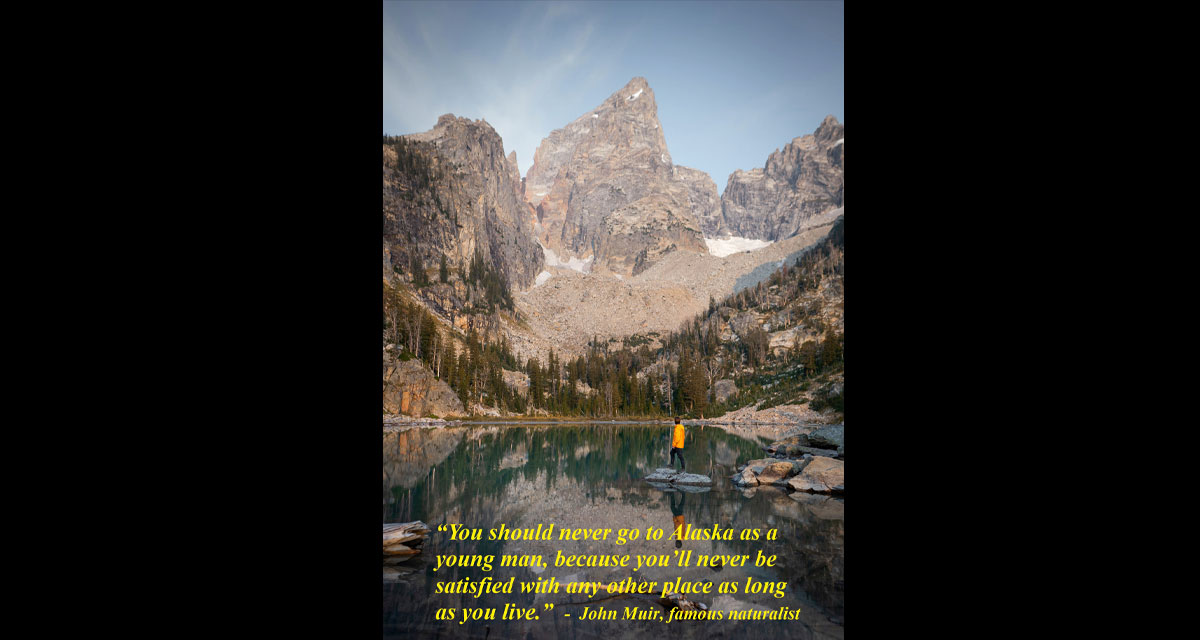Christopher Johnson McCandless was 25 years old when he wrote his last journal entry. His story, made into a book and movie entitled Into the Wild (streaming on Netflix), was very popular when it came out in 2007 on the big screen. When I watched the movie, back then I had nine-year-old and five-year-old boys. I remember the movie was inspiring to me, pointing out the simple joys of life minus all of life’s troubles and stresses. I was amazed at his insight and perseverance, not to mention his survival skills. It was another time; my view of life was through a different lens. [Spoiler Alert: If you haven’t seen it, I touch on the ending, so be forewarned.]
Watching the movie again twelve years later and having been a parent then for over twenty years, I viewed it through an updated lens. I saw someone—in my opinion—hypocritical , shallow, and insensitive to others. Someone taking the benefits of his abundant life for granted. Someone who spent his entire adult life trying to get back at his parents by rebelling and doing the opposite of everything he had grown up doing. He was resourceful, but his inner anger would slowly eat away at his soul and ultimately his life.
He thought he was finally living for once, seeing life the way it was meant to be seen. In reality, he was running away. There’s no question his parents had issues and their dysfunctional marriage was a negative influence on him; and in a perfect world, it would seem too difficult to bear. But, twelve years later, I realized what a waste this was. He never got to grow up to learn his parents were just people like any others. They had their faults, weaknesses, and they made mistakes, just as he was about to do. Just because they were older didn’t make them infallible, but he didn’t see them like that. He could have if he had had time. Instead, he left them and his wealthy lifestyle behind, leaving a space inside them that would never be filled again. He selfishly didn’t realize that his life wasn’t just his own; his life impacted others just as their lives impacted him. Ironically, he would do to them what he sanctimoniously felt they had done to him, only his hurt was permanent.
In fairness, as I watched the movie, I witnessed the depiction of his family life, and although there was wealth, it wasn’t without its fair share of drama. I saw, as the movie progressed, the extreme anguish both parents were forced to endure when their son dropped off the map, removing all traces of his existence, including his identity.
Chris was obviously extremely intelligent in the book sense. He had a crazy streak in him, part adventurer, and part immature child with rage issues against his parents, society, and politics in general. He grew to detest materialism, giving away his life savings, burning his spending money in a fire pit, and abandoning his car—not before removing and concealing the license plates first. He was on a mission to the great wilderness of Alaska.
Although it may sound that way, I truly mean no genuine disrespect to Chris or his family. I think they raised a smart, independent, strong-willed man who displayed an amazing resilience to life’s obstacles on his path to his chosen destination. Regardless of their faults, he had prevailed by graduating from college, with a future as bright as he was. But I think there are many lessons in his life to be gained, and not just the philosophical ones relating to appreciating life and the beauty and power of the present moment. Those things are easy to see, as I did in my first viewing. The things not as evident are those that only a parent would notice and understand. As much as the ending was sad, so were the lives of the parents and family he left behind. The look on their faces, albeit as actors, was real and the pain and torment were evident in their utter despair.
As smart as he was, Chris missed what was most important. It wasn’t the scenery of the nature he witnessed, or even the relationships he made along the way. It was what he could have accomplished in his life in its entirety. One might say, “With his book and movie hasn’t he done just that, many times over?” Not in my opinion. I would forego the movie, book, and everything else that came with it to think he survived and shared his talents and intellect throughout his lifetime with others face-to-face, instead of in a eulogy format. As intelligent as he was, he was still child-like in his understanding of human relationships and the importance of sharing his life with others. I would prefer it had ended with him restoring his relationship with his family, as I’m sure they would have, as well.
To comment and see more visit theviewfrommysection.com.



















